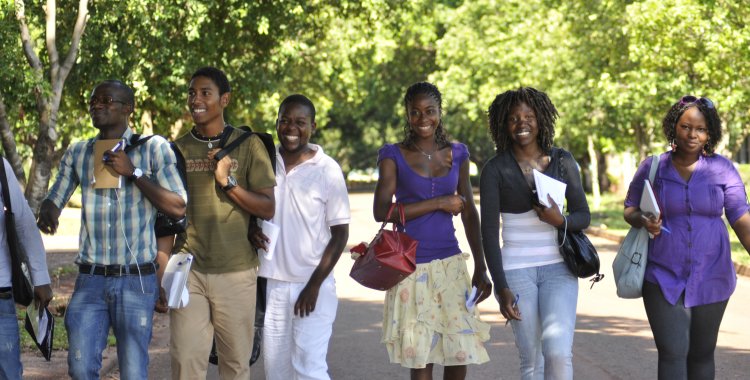Speaking to Lusa, Clara Carvalho, from the Center for International Studies at Iscte – Instituto Universitário de Lisboa, explained that some institutions promote a "semester zero" that allows students to adapt to the pedagogy and teaching system, something that she considers to be very effective".
African students "do not lack academic skills, but they have great difficulty integrating, they do not know the subjects, they do not know the form of teaching and they often have linguistic difficulties", a situation to which "in addition, in many cases, economic difficulties", said the coordinator of the report "Profile of PALOP Students in Higher Education Institutions in Portugal: characterization, expectations, constraints", between 2015 and 2021, now published.
The document's authors point out that some institutions have had "positive results" with "monitoring strategies", which include, in the case of "private and one public universities", a semester of preparation that "has facilitated the integration of students and the continuation of studies".
In the recommendations, the authors admit the creation of "entrance tests for students in special regimes from countries without national exams" and "a semester of preparation and integration or a year zero" for students who "have not taken tests in Portugal".
Speeding up the process of granting visas or direct contacts between institutions from different countries are other proposals made by the authors.
In recent years, the higher education system in Portugal has seen a very large increase in students from the PALOP, particularly Guineans, which increased by 900 percent between 2015 and 2021.
For many "universities and polytechnics in the interior, these students are very important to keep certain courses open and, therefore, these institutions make a great effort to integrate them", explained Clara Carvalho, who gave the good example of Bragança.
The "Instituto Politécnico de Bragança is, at the moment, the Portuguese institution that receives the most students from the PALOP, of which the vast majority come from Cape Verde", celebrating "direct protocols" with local authorities and educational institutions to attract students.
"This allows these institutions, which were far from the major centers of attraction for international students or even Portuguese students, to grow significantly" beyond their region of the Instituto Politécnico de Bragança, she stated.
This created a "social and academic dynamic" in interior institutions that should be "harnessed for the future", she added.
In the total period analyzed (2015-2021), Angola is the country with the most students in Portugal but, in recent years, Cape Verde and Guinea-Bissau have grown the most, today constituting the two countries with the most students.
According to the report, with "the exception of students from Angola, who mainly attend university education, the majority of PALOP students are in polytechnic education".
"The number of women and men registered is balanced for all PALOP countries, with the exception of Guinea-Bissau, where the asymmetry between the numbers of men and women registered is accentuated", and Cape Verde, which "presents more women than men in all study cycles".
Higher education institutions "have reacted in different ways to this contingent of students", with "private and one public universities" having a strategy, "since the 1990s, to attract students from Angola with great success", referred to in the report.
Institutions in the interior of Portugal "seek to attract students from the PALOP through protocols established with countries of origin, whether with municipalities, companies or the government", while those on the coast "do not follow a recruitment strategy" to these markets.
In relation to the preparation of students, "distinguished, on the one hand, are students from Angola, Cape Verde and Mozambique, with positive academic performance" in degrees, compared to those arriving from Guinea-Bissau or São Tomé and Príncipe.
"The difficulty in obtaining visas and the lack of financial resources means that many students have to work, finding it difficult to follow classes", a "situation particularly visible among students from Guinea-Bissau and São Tomé and Príncipe", can read in the report.







